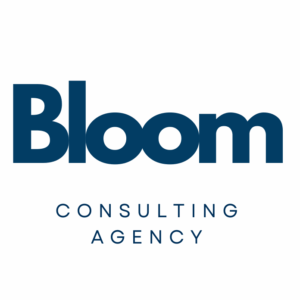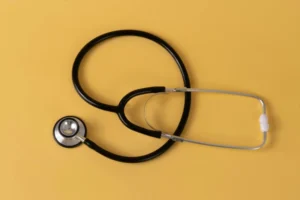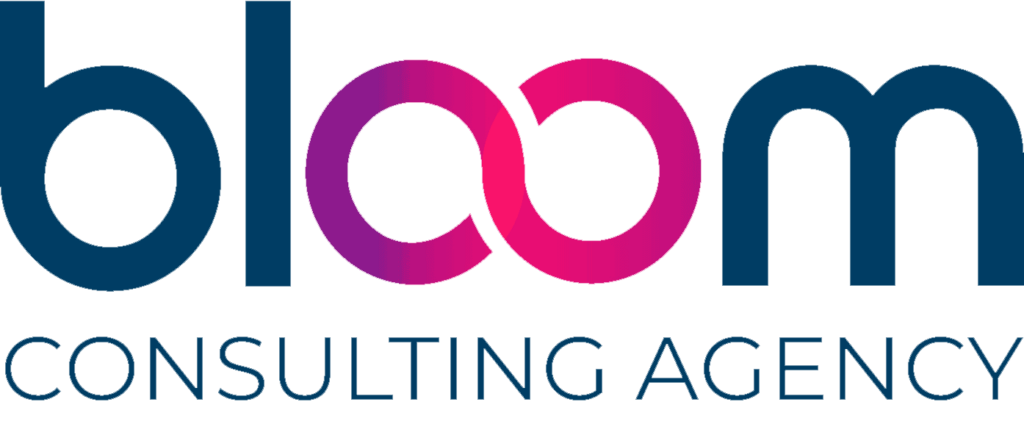Choosing the right medical collection agency is a critical decision that can significantly impact your healthcare practice’s financial health and revenue cycle management. With healthcare providers facing increasing challenges in collecting outstanding debts, partnering with the right medical billing and collection services has become more important than ever. We’ll cover everything you need to consider to ensure you select a reliable and compliant medical collection agency
What is a Medical Collection Agency?
Medical collection agencies specialize in recovering unpaid medical debts on behalf of healthcare providers. These third-party billing companies work as an extension of your practice’s revenue cycle management system, focusing specifically on accounts receivable that have become delinquent. Unlike traditional medical billing companies that handle the entire billing process and work to improve accounts receivables, collection agencies typically take over after your internal collection efforts have been exhausted.
The primary role of medical billing and collection companies extends beyond simple debt recovery. They serve as crucial partners in your healthcare billing services ecosystem, helping maintain cash flow while preserving patient relationships. Modern collection agencies understand the sensitive nature of healthcare debt and employ specialized strategies tailored to the medical field.
Why Healthcare Providers Need Professional Collection Services
Healthcare practices face unique challenges when it comes to collecting outstanding debts. Patient responsibility has increased significantly due to high-deductible health plans, while regulatory requirements like HIPAA add complexity to collection efforts. Medical billing and collection services provide expertise in navigating these challenges while maintaining compliance with healthcare regulations.
Furthermore, the collections process in medical billing requires specialized knowledge of insurance procedures, Medicare and Medicaid regulations, and patient advocacy requirements. Professional collection agencies bring this expertise to your practice, allowing you to focus on patient care while ensuring optimal revenue recovery.
Key Factors to Consider When Choosing a Medical Collection Agency
1. Industry Experience and Specialization
When evaluating medical billing companies, prioritize those with extensive experience in healthcare collections. Look for agencies that specialize in medical debt recovery rather than general collection services. Specialized medical collection agencies understand the unique challenges of healthcare billing, including insurance coordination, patient payment plans, and regulatory compliance.
Consider agencies that have experience with your specific medical specialty. For instance, if you’re running a mental health practice, look for agencies experienced in behavioral health billing services. Similarly, practices offering specialized services like durable medical equipment should seek agencies familiar with DME billing complexities.
2. Compliance and Regulatory Expertise
Healthcare collections are subject to numerous regulations, including HIPAA, FDCPA, and state-specific healthcare laws. Your chosen medical billing and collection company must demonstrate comprehensive understanding of these regulations. Request documentation of their compliance programs and ask about their staff training procedures.
Additionally, verify that the agency maintains appropriate certifications and licenses. Many states require specific licensing for collection agencies, and healthcare-focused agencies should hold relevant healthcare compliance certifications.
3. Technology and Integration Capabilities
Modern revenue cycle management companies leverage advanced technology to improve collection rates and streamline processes. Look for agencies that offer electronic medical billing integration with your existing practice management software. This integration ensures seamless data transfer and reduces the risk of errors.
Consider agencies that provide real-time reporting and analytics. These tools help you monitor collection performance and make informed decisions about your revenue cycle management strategy. The best medical billing companies offer comprehensive dashboards that provide insights into collection trends and patient payment patterns.
4. Collection Strategies and Approach
Different medical collection agencies employ varying strategies for debt recovery. Some focus on aggressive collection tactics, while others prioritize patient relationship preservation. Choose an agency whose approach aligns with your practice’s values and patient care philosophy.
Inquire about their patient communication methods and frequency. The best agencies use multiple communication channels, including phone calls, letters, and digital communications, while maintaining professional and respectful interactions with patients.
5. Fee Structure and Cost Considerations
Medical billing services fees vary significantly among collection agencies. Most agencies charge a percentage of collected amounts, typically ranging from 15% to 35%, depending on the age and complexity of the debt. Some agencies may also charge setup fees or monthly minimums.
When comparing costs, consider the total value proposition rather than just the percentage fee. An agency with higher fees but superior collection rates may provide better overall value for your practice. Additionally, inquire about any additional charges for services like skip tracing or legal collections.
Types of Medical Collection Services
Third-Party Billing Services
Third-party billing companies handle collections as part of their comprehensive revenue cycle management services. These agencies typically manage the entire billing process, from claim submission to final collection. Outsourcing your medical billing can reduce costs and help optimize billing workflows for many clinics.
Specialized Collection Agencies
Specialized medical collection agencies focus exclusively on debt recovery for healthcare providers. These agencies typically take over accounts after your primary billing efforts have been exhausted. They often achieve higher recovery rates due to their specialized expertise and dedicated collection focus.
Outsourced Medical Billing Companies
Some healthcare providers choose to outsource their entire billing operation to medical billing companies that include collection services. This comprehensive approach can be cost-effective for practices that want to eliminate internal billing operations entirely.
Evaluating Agency Performance and Success Metrics
Collection Rate Analysis
The most important metric for evaluating collection agencies is their success rate in recovering outstanding debts. Request performance data specific to accounts similar to yours in terms of age, dollar amount, and patient demographics. Be cautious of agencies that promise unrealistic recovery rates, as these may indicate aggressive tactics that could harm patient relationships.
Average Collection Time
Faster collections improve your cash flow and reduce the likelihood of accounts becoming uncollectible. Inquire about the agency’s average time to first payment and complete resolution. The best medical billing and collection services typically achieve first contact within 24-48 hours of receiving accounts.
Patient Satisfaction Metrics
Since collections involve direct patient contact, it’s crucial to choose an agency that maintains high patient satisfaction standards. Ask for references from other healthcare providers and inquire about their patient complaint resolution processes.
Legal and Compliance Considerations
HIPAA Compliance
Medical collection agencies must comply with HIPAA regulations when handling protected health information. Ensure your chosen agency has signed a Business Associate Agreement (BAA) and maintains appropriate safeguards for patient data. Request documentation of their HIPAA compliance programs and staff training procedures.
State and Federal Regulations
Collection agencies must comply with various state and federal regulations, including the Fair Debt Collection Practices Act (FDCPA) and state-specific collection laws. Verify that your chosen agency maintains current licenses and certifications in all relevant jurisdictions.
Documentation and Reporting Requirements
Your collection agency should provide comprehensive documentation of all collection activities. This documentation is essential for regulatory compliance and may be required for legal proceedings. Ensure the agency maintains detailed records of all patient communications and collection efforts.
Red Flags to Avoid When Selecting a Collection Agency
Unrealistic Promises
Be wary of agencies that guarantee specific collection rates or promise to collect on accounts that other agencies have deemed uncollectible. Legitimate agencies provide realistic expectations based on historical performance data.
Lack of Healthcare Experience
Avoid general collection agencies that lack specific healthcare experience. Medical collections require specialized knowledge of healthcare billing, insurance procedures, and patient advocacy requirements that general agencies may not possess.
Poor Communication and Transparency
Choose agencies that provide regular reporting and maintain open communication channels. Avoid agencies that are reluctant to provide performance data or references from other healthcare providers.
Aggressive or Inappropriate Tactics
Steer clear of agencies that employ aggressive collection tactics or show disregard for patient dignity. These approaches can damage your practice’s reputation and may violate regulatory requirements.
Questions to Ask Potential Collection Agencies
Experience and Credentials
- How long have you been providing medical collection services?
- What percentage of your business comes from healthcare providers?
- Do you have experience with my medical specialty?
- What certifications and licenses do you maintain?
Technology and Integration
- What practice management systems do you integrate with?
- What EHRs do you integrate with?
- How do you ensure data security and HIPAA compliance?
- What reporting capabilities do you offer?
- Can you provide real-time access to account status?
Collection Strategies
- What is your typical collection process timeline?
- How do you handle patient complaints or disputes?
- What methods do you use to contact patients?
- How do you maintain patient relationships during collection efforts?
Performance and Pricing
- What are your average collection rates for accounts similar to mine?
- How do you calculate your fees?
- Are there any additional charges I should be aware of?
- Can you provide references from other healthcare providers?
Best Practices for Working with Medical Collection Agencies
Clear Communication and Expectations
Establish clear communication protocols and performance expectations from the beginning of your relationship. Define reporting schedules, collection timelines, and success metrics to ensure alignment between your practice and the collection agency.
Regular Performance Reviews
Schedule regular performance reviews to assess the agency’s effectiveness and address any concerns. Monitor key metrics like collection rates, patient complaints, and compliance issues to ensure the agency meets your standards.
Maintain Patient Relationships
Work with your collection agency to ensure patient relationships remain intact throughout the collection process. Share your practice’s patient care philosophy and preferred communication style. If a patient needs flexibility with payments, make every effort to accommodate their needs.
Compliance Monitoring
Regularly review the agency’s compliance procedures and documentation. Stay informed about regulatory changes that may affect collection practices and ensure your agency adapts accordingly.
The Future of Medical Collections
The medical collection industry continues to evolve with technological advances and changing healthcare regulations. Artificial intelligence and machine learning are increasingly being used to improve collection strategies and predict payment behavior. Additionally, patient payment portals and digital communication channels are becoming standard features of modern collection services.
Healthcare providers should choose collection agencies that invest in technology and stay current with industry trends. This forward-thinking approach ensures your practice benefits from the latest innovations in revenue cycle management.
Frequently Asked Questions
How much do medical collection agencies typically charge?
Medical collection agencies typically charge between 15% to 35% of collected amounts, depending on factors like account age, debt amount, and collection complexity. Some agencies may also charge setup fees or monthly minimums. It’s important to compare the total value proposition rather than just the percentage fee.
When should I send accounts to a collection agency?
Most healthcare providers send accounts to collection agencies after 90-120 days of unsuccessful internal collection efforts. However, this timeline may vary depending on your practice’s policies and the specific circumstances of each account.
Can collection agencies help with insurance collections?
Yes, many medical collection agencies specialize in insurance collections and can help recover unpaid claims from insurance companies. They understand insurance regulations and can navigate complex claim disputes effectively.
How do I ensure my chosen collection agency is HIPAA compliant?
Verify that the agency has signed a Business Associate Agreement (BAA), maintains appropriate data security measures, and provides regular staff training on HIPAA requirements. Request documentation of their compliance programs and certifications. Also, ensure that the medical billing company you choose follows strict protocols and complies with all patient privacy laws.
What happens if a collection agency cannot collect on an account?
If a collection agency cannot collect on an account, they may return it to your practice or recommend writing it off as bad debt. Some agencies offer legal collection services for particularly challenging accounts.
How can I monitor my collection agency’s performance?
Most reputable collection agencies provide regular reporting on collection activities, success rates, and account status. Request access to real-time reporting dashboards and schedule regular performance reviews.
Should I choose a local or national collection agency?
Both local and national agencies have advantages. Local agencies may offer more personalized service and better understanding of local regulations, while national agencies often provide more comprehensive technology and resources. Choose based on your specific needs and preferences.
Can I use multiple collection agencies simultaneously?
While possible, using multiple collection agencies can create complications and potential conflicts. Most practices achieve better results by partnering with one primary agency and possibly one specialized agency for specific types of accounts.
Finding the Best Medical Billing Company Collection Agency Near You
Selecting the right medical collection agency is a crucial decision that impacts your practice’s financial health and patient relationships. By considering factors like industry experience, compliance expertise, technology capabilities, and collection strategies, you can choose an agency that aligns with your practice’s needs and values.
Remember that the cheapest option isn’t always the best choice. Focus on finding an agency that provides comprehensive medical billing and collection services while maintaining high standards of patient care and regulatory compliance. With the right partnership, a professional collection agency can significantly improve your revenue cycle management and help ensure the long-term financial success of your healthcare practice.
Take the time to thoroughly evaluate potential agencies, ask the right questions, and establish clear expectations from the beginning. This investment in due diligence will pay dividends in improved collections, better patient relationships, and enhanced financial stability for your practice.
Finding the Best Medical Collection Agency in South Florida
Choosing the best medical collection agency doesn’t have to be overwhelming. If you’re ready to improve your revenue cycle management and maximize your practice’s collections, Bloom Consulting Agency is here to help. Our healthcare collections consultants specialize in helping medical practices evaluate and select the best medical billing and collection services for their specific needs.
Whether you’re considering outsourcing medical billing for the first time or looking to switch from your current medical collection agency, our team of experienced healthcare billing consultants can guide you through the selection process. We’ll help you identify the top medical billing companies that align with your practice’s goals and ensure you’re getting the best value for your investment.
Don’t let uncollected revenue impact your practice’s financial health. Contact Bloom Consulting Agency today to schedule a consultation and discover how the right medical billing and collection services can transform your revenue cycle management. Let us help you find the perfect collection agency partner to secure your practice’s financial future.










